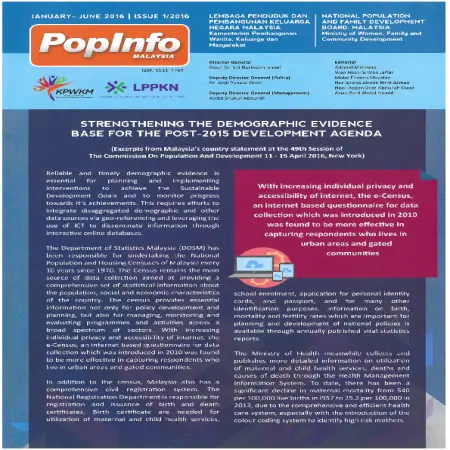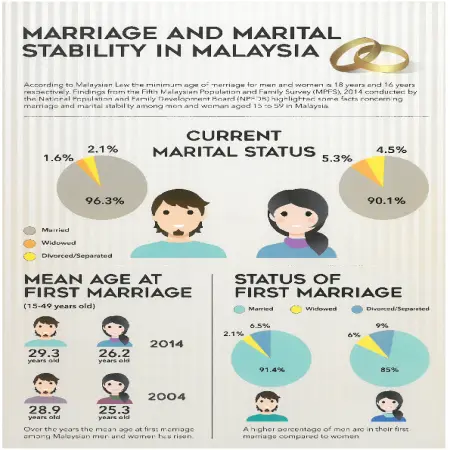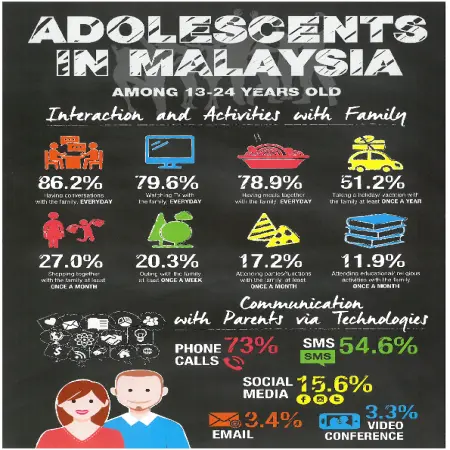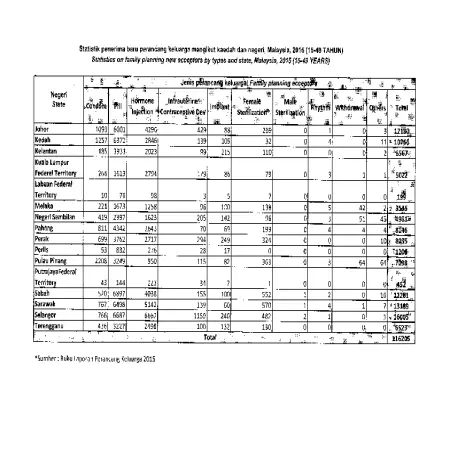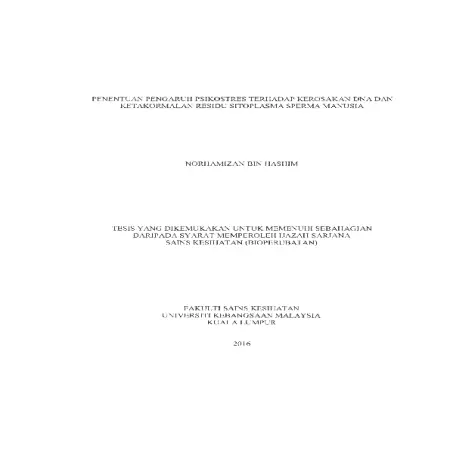Browse by Year
|
|
Strengthening the demographic evidence base for the post-2015 development agenda
Item Type: Newsletter
Editor:
Year: 01/07/2016
Abstract: In Malaysia, the implementation of the post-2015 development agenda has obtained the highest political commitment at the national level and has continuously involved multi-stakeholders engagement under the 11th Malaysia development plans (2016-2020). Malaysia will also further improve the availability of online interactive databases and access to geo-referenced datasets disaggregated by relevant characteristics such as income, gender, age, ethnicity and disability, to ensure that no one is left behind.
|
|
|
|
|
|
Panduan pemakanan bayi
Item Type: Article
Editor:
Year: 00/03/2016
Abstract: The nutrition of children is based on the same principles as nutrition for adults. Everyone no matter little or adult needs the same nutrients such as vitamins, minerals, fats, carbohydrates and proteins. However, infants and children need different amounts according to age. Infant nutrition is important to ensure that complete nutrients are given to infants for optimal mental and physical development.
|
|
|
|
|
|
Kajian bagi mengenalpasti faktor-faktor risiko kanser payudara yang berkaitan dengan gaya hidup dalam kalangan wanita melayu di Kuala Lumpur
Item Type: Thesis
Editor:
Year: 00/02/2016
Abstract: Breast cancer is the most common cancer that has affected women all over the world. The worldwide rates of breast cancer incidence and mortality show a drastic and alarming increase. Until today the cause of the disease has yet to be identified. However, evidences from extensive researches related to breast cancer found that there were several lifestyle factors and some biomedical factors of the women that are scientifically recognized to increase the risk for breast cancer. In Malaysia, recent data obtained from data obtained from the National Population and Family Development Board (NPFDB) shows the incidence rate of breast cancer among Malay women was
found to have increased drastically in the last 8 years. This study aimed to identify risk factors, especially those related to lifestyle that may increase the risk of breast cancer among Malay women in Kuala Lumpur. The study also examined the knowledge of breast cancer among informants. A total of twelve breast cancer survivors were
interviewed in depth to identify and explore aspects of past lifestyle and biomedical background that may likely to increase their risk of getting breast cancer. Results show that some lifestyle and biological risk factors seen likely to increase the risk of getting breast cancer; late age at first birth or has never given birth (nulliparity), has never
breastfed or short period of breastfed, obesity, physical inactivity, high frequency of red meat intake, less intake of vegetables and fruits, psychological stress, family history of breast cancer and radiation treatment to the chest or breast. The study also found that the majority of the informants had poor knowledge regarding breast cancer.
|
|
|
|
|
|
Pelancaran Laporan Penemuan Utama Kajian Penduduk dan Keluarga Malaysia Kelima (KPKM-5)
Item Type: Video
Editor:
Year: 00/02/2016
Abstract: The 2014 Malaysian Population and Family Survey is the fifth in a series of surveys conducted by the NPFDB every 10 years since 1974. The information covered for each target group was related to population, living quarters and household, formation of family, fertility, family planning, family life, health practices, elderly, as well as the social and sexual activities of the adolescents.
|
|
|
|
|
|
Penentuan pengaruh Psikostres terhadap kerosakan DNA dan ketakormalan residu sitoplasma sperma manusia
Item Type: Thesis
Editor:
Year: 00/00/2016
Abstract: Idiopathic infertility has been correlated with psychostress which can result in abnormality and declining semen quality in men. Nevertheless, direct relationship of semen quality and psychostress is still unclear. Hence, this study was conducted to evaluate the effect of psychostresson semen quality with emphasizing on sperm DNA damage and cytoplasm droplet abnormality. A total of 628 respondents were selected randomly among men aged between 25-45 years old were patient from LPPKN.
|
|
|
|
|
|
The 49th session of the Commission on Population and Development on agenda item 4: general debate on national experience in population matters: "strengthening the demographic evidence base for the post - 2015 development agenda", New York
Item Type: Country Statement
Editor:
Year: 00/00/2016
Abstract: The Department of Statistics Malaysia (DOSM) has been responsible for undertaking the Population and Housing Censuses of Malaysia every years since 1970. The Census remains the main source of data collection aimed at providing a comprehensive set of statistical
information about the population in the country in terms of its size and spatial distribution, its demographic, social and economic characteristics as well as housing stock at a specific time
reference. The census provides essential information not only for policy development and planning, but also for managing, monitoring and evaluating programs and activities across a broad spectrum of sectors. The 2010 Census round utilized improved ICT technologies and new approaches in the different phases of the census operation. The emerging technologies are transforming the way the Census is conducted in terms of operations management, quality assurance, data capture, mapping (GIS, GPS), data processing and storage. With the ever increasing individual privacy and accessibility of internet, the e-Census was introduced in 2010. An internet based questionnaire for data collection, was found to be more effective to capture respondents mainly in large urban areas and the gated communities.
|
|
|
|





